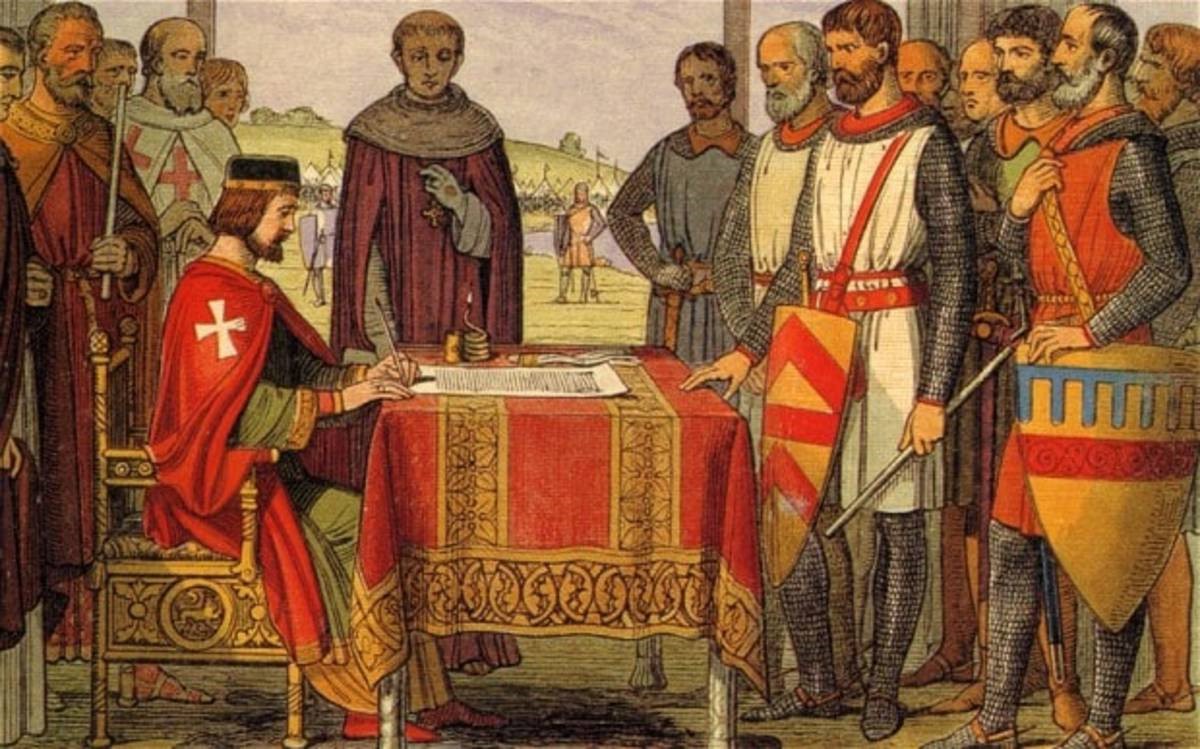
Ever wondered how a document from 1215 could still be making waves in modern law and society? The Magna Carta is that legendary parchment, folks! Imagine, way back in the day, a group of rebellious barons and a king with a penchant for heavy taxes coming together to pen a deal. Sounds like a medieval drama, right? But this wasn't just any agreement; it laid down the law, quite literally, shaping the principles of freedom and justice as we know 'em today. So, why should you care about these ancient scribbles? Because, believe it or not, they're the backbone of many rights you enjoy today! Buckle up as we dive into 17 astonishing facts about The Magna Carta that'll make you appreciate this historical heavyweight even more.
Key Takeaways:
- The Magna Carta, created in 1215, protected the rights of the people against the king's power. Its principles influenced legal systems worldwide, making it a symbol of freedom and equality.
- Despite being over 800 years old, the Magna Carta's legacy lives on, inspiring books, films, and educational programs. It symbolizes the ongoing struggle for liberty and justice.
What is The Magna Carta?
The Magna Carta, also known as the Great Charter, is a document that King John of England agreed to on June 15, 1215. It was created to make peace between the unpopular king and a group of rebel barons. Magna Carta is often celebrated as a cornerstone of liberty and justice in the English-speaking world, laying down laws to protect the rights and freedoms of the common people against the whims of the king.
-
The Magna Carta was originally written in Latin, the scholarly and legal language of the time.
-
Only four original copies of the Magna Carta from 1215 are known to exist today. They are held in the British Library and cathedrals of Salisbury and Lincoln.
Why Was The Magna Carta Created?
The creation of the Magna Carta was a response to King John's heavy-handed rule and his constant demands for taxes to fund his military campaigns in France. Barons and church officials were fed up with the king's abuse of power and demanded a list of rights and laws to protect themselves and the kingdom's people.
-
The Magna Carta was essentially a peace treaty between King John and his barons, aiming to prevent civil war.
-
It included clauses that limited the king's power, such as the requirement for royal officials to follow the law and the protection of church rights.
Key Clauses of The Magna Carta
Many of the Magna Carta's clauses were designed to deal with specific grievances relating to King John's rule. However, some have had a lasting impact on legal systems around the world.
-
One of the most famous clauses, Clause 39, states that no man shall be arrested, imprisoned, or exiled except by the lawful judgment of his peers or by the law of the land.
-
Clause 40 demands that justice shall not be sold, denied, or delayed to anyone.
The Magna Carta's Influence on Modern Law
The principles laid out in the Magna Carta have echoed through history, influencing legal systems and documents around the world, including the United States Constitution and the Universal Declaration of Human Rights.
-
The Magna Carta is often cited as the first step in a historical process that led to the rule of constitutional law in the English-speaking world.
-
Many countries have looked to the Magna Carta as a symbol of freedom against arbitrary power, making its principles a global legacy.
The Magna Carta Today
Despite being over 800 years old, the Magna Carta still holds significant cultural and legal importance today. Its legacy is celebrated and its principles are still studied and admired.
-
In 2009, the Magna Carta was added to UNESCO's Memory of the World Register, recognizing its global significance in the history of democracy.
-
Special exhibitions and educational programs continue to be developed around the Magna Carta, aiming to teach new generations about its importance and impact.
-
The Magna Carta has inspired numerous books, films, and articles, highlighting its enduring appeal and relevance.
-
A 1297 version of the Magna Carta, confirmed by Edward I, sold for $21.3 million in 2007, underscoring its value not just as a historical document but as a cherished symbol of liberty.
Misconceptions About The Magna Carta
Despite its fame, there are many misconceptions about the Magna Carta and its impact on history and law.
-
The Magna Carta did not establish democracy in England; rather, it laid the groundwork for the development of parliamentary democracy and legal principles over centuries.
-
It was not the first document to limit the power of an English king. The Charter of Liberties, issued in 1100 by Henry I, also sought to curb the king's powers.
-
The Magna Carta was not initially successful; King John and the Pope annulled it shortly after its creation, leading to the First Barons' War.
-
Despite its significance, most of the original clauses have been repealed or modified over time. Only three clauses remain part of English law today.
The Magna Carta's Legacy
The Magna Carta's legacy is not just in the document itself but in the principles it represents: the idea that everyone, including the king, is subject to the law.
- Its influence can be seen in many foundational documents and movements for human rights and justice worldwide, making the Magna Carta a symbol of the ongoing struggle for liberty and equality.
A Final Glimpse at Magna Carta's Legacy
Magna Carta's impact stretches far beyond its initial creation in 1215. This document didn't just lay the groundwork for constitutional law; it became a symbol of freedom and justice worldwide. Its principles have influenced countless legal systems and have been a cornerstone in the development of democratic societies. Magna Carta reminds us that the quest for liberty and equality is ongoing, and its lessons are as relevant today as they were over 800 years ago. For anyone delving into the roots of modern democracy or exploring the evolution of legal rights, Magna Carta offers invaluable insights. Its legacy is a testament to the enduring power of written charters to challenge, inspire, and shape the course of history. Let's keep this remarkable document in mind as we continue to strive for justice and freedom in our own times.
Frequently Asked Questions
Was this page helpful?
Our commitment to delivering trustworthy and engaging content is at the heart of what we do. Each fact on our site is contributed by real users like you, bringing a wealth of diverse insights and information. To ensure the highest standards of accuracy and reliability, our dedicated editors meticulously review each submission. This process guarantees that the facts we share are not only fascinating but also credible. Trust in our commitment to quality and authenticity as you explore and learn with us.


